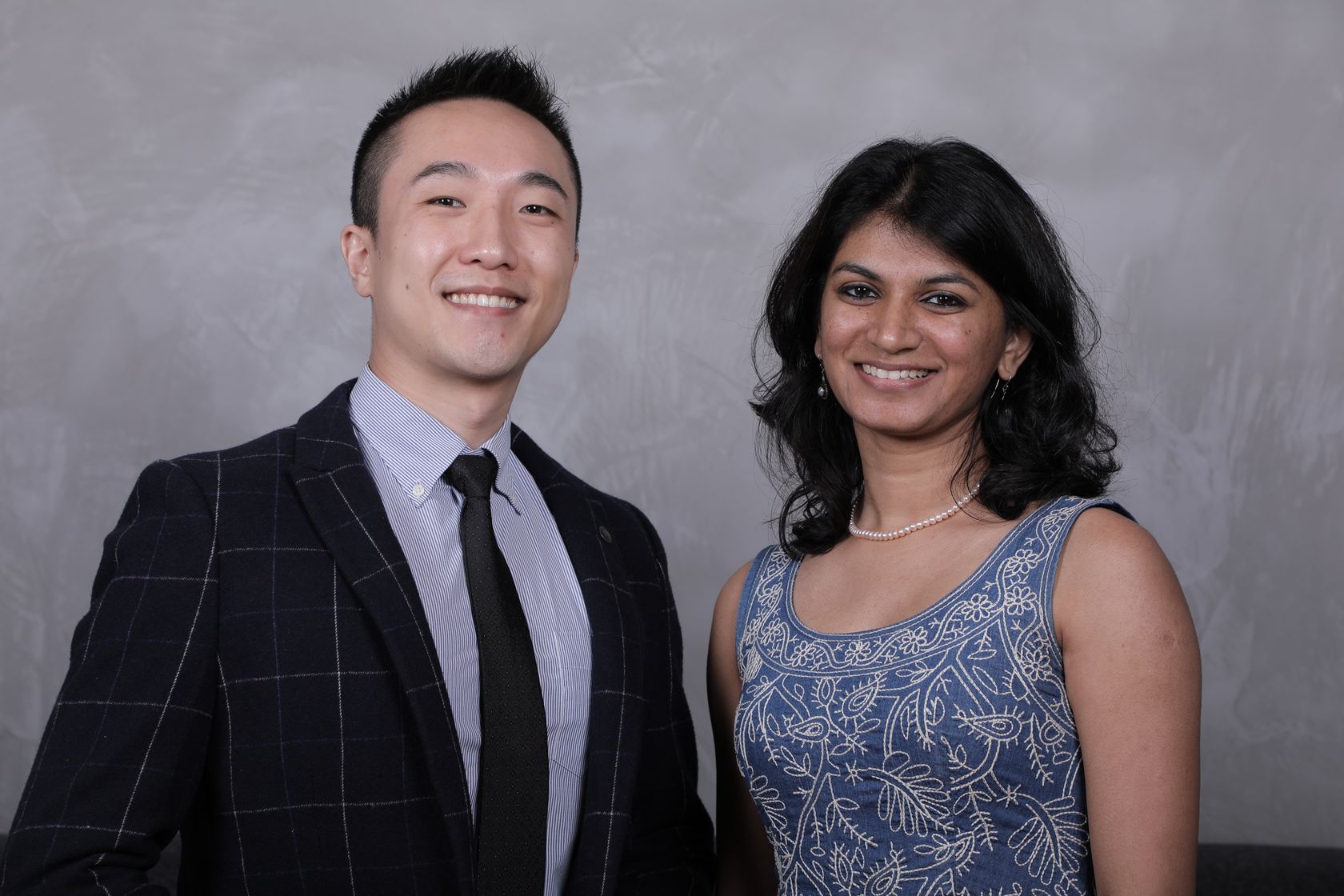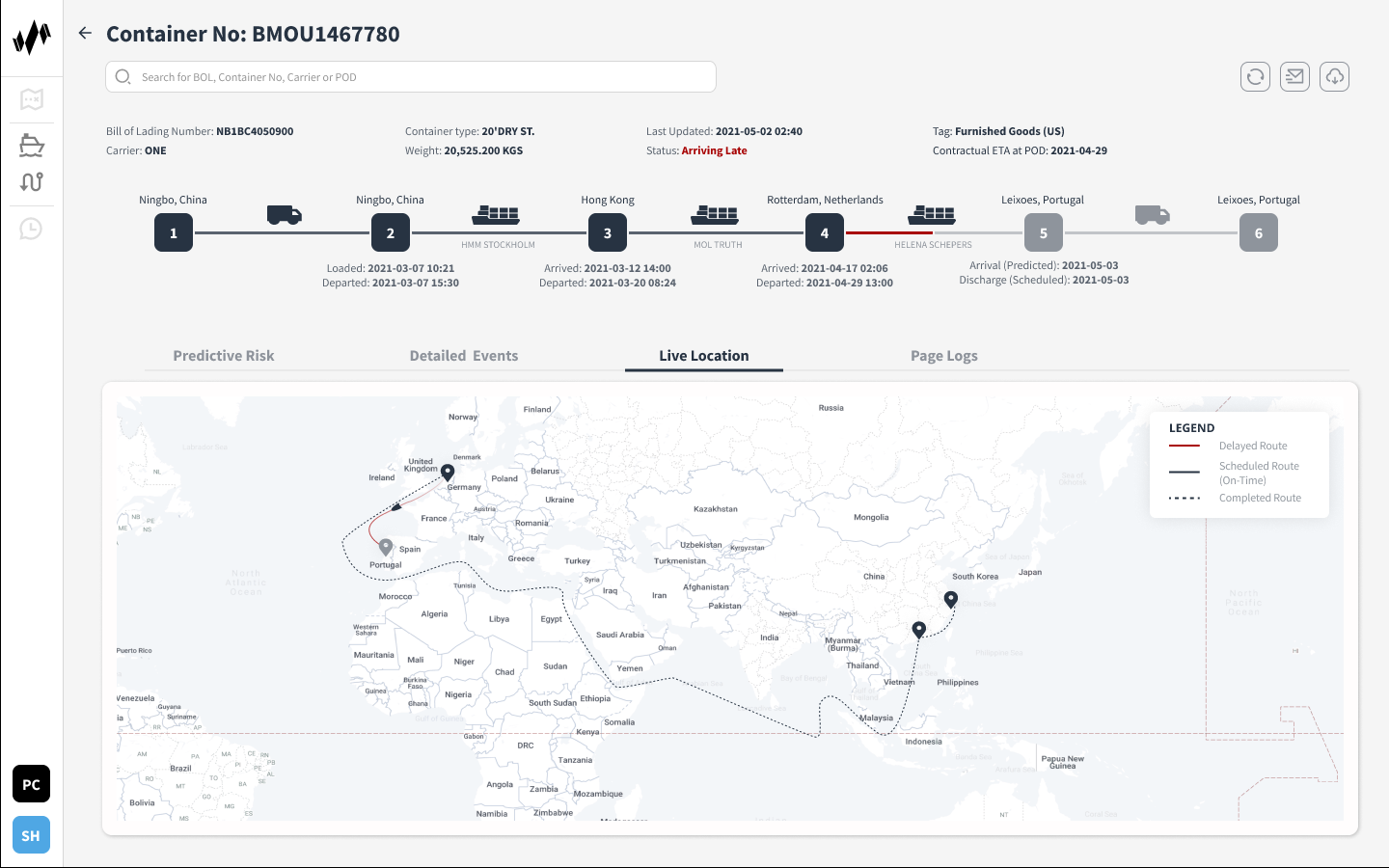Gupta runs Portcast, which is headquartered in Singapore, with co-founder Dr. Lingxiao Xia. The business is focused on improving supply chain profitability by accurately predicting cargo flows with a variety of data sets that can anticipate movement processes better. The intention is to be both a sentry and a messenger who can identify uneventful encounters, such as a Suez Canal incident, as well as policy changes and their impact on congestion, and flag these factors to their clientele who can execute relevant action for a better logistical flow.
Nidhi Gupta has seen dramatic life changes over the past five years. The Co-Founder and CEO of logistics start-up Portcast is going through a “rollercoaster start-up life” after a decade of an “almost-cruising corporate career” at international giant DHL. “Start-ups are hard; remote work since the Covid-19 pandemic started has meant fewer boundaries between work, personal, and family time,” she shares. “I believe that the small time investments I make in meditation, yoga, painting, and spending time with my son are critical to staying sane and grounded.”
 Nidhi Gupta with Dr. Lingxiao Xia
Nidhi Gupta with Dr. Lingxiao Xia
Technology is at the forefront of Portcast. How do you apply it effectively, and how has it improved your processes?
As with all industries, the logistics sector has become more digitalized, with technology integrated in every aspect of the industry. According to a recent PwC study, nearly 75 per cent of companies expect to have achieved advanced levels of digitization within the next three years. Shifting to digital has impacted the industry as a whole, particularly in improving the delivery of services to customers. With this ongoing digitalization, the industry has become faster, more efficient and dynamic, and we strive to build on this.
At Portcast, we consolidate data from various sources, such as geospatial data (which shows where any ship in the world is and at what speed, the direction it is moving towards, where the next boat is going to go, etc), granular weather patterns, various political and economic patterns, phases of vaccine rollouts and impact on air travel, etc. We then take these data and use AI to predict how much volume is going to be shipped between any two ports, and when it will arrive.
As a CEO, how do you approach problem-solving?
My approach is data-driven and logical. I try to find the data, look at 80:20 rules, and then identify if the root cause is related to processes or cross-functional issues, communication issues or technical logic, or if it is a people problem.
You have spent a good amount time in logistics, mostly with DHL. How significant was the transition in culture, working style, etc. from a large corporation to a start-up company?
The culture at Portcast is entrepreneurial, self-driven, ambitious, collaborative, and with an obligation to dissent. The key difference it has from a corporate environment is the ability to ideate and create with speed, and at scale, and being agile about (handling) feedback from customers. Another key difference is that the lack of support structures and lean resources implies the need to be hands-on — roll up the sleeves, solve the problem, and do what needs to be done. I think these are all traits which make start-ups exciting — being constantly on adrenaline — and energizing.
My time at DHL gave me the idea of starting Portcast as I wanted to create more intelligent control towers and forecasting systems for logistics. Moreover, since Portcast is a B2B solution, the experience of working within a large enterprise helped me understand the decision-making and procurement processes.

Your academic background, however, is computer science. Does it play a role in Portcast, and in what ways?
I’ve always been interested in technology from a young age, and so I pursued my passion and studied computer science engineering. It was at the university that I became interested in business applications and the impact of computer sciences and technology on industries across the world. I believe that while technology is an enabler to achieving strategic goals, implementing it successfully also requires an understanding of unit economics and organizational psychology. My MBA provided me with the platform to think how technology can fit into the wider organizational strategy.
What’s the end-goal for Portcast? What does the ideal, efficient, and all-around logistically-perfect world look like to you?
As we’re based in Singapore, a top global hub for logistics from both an ocean and air freight perspective, I believe we have a real opportunity to create a difference in the logistics tech landscape here and across the region. We’ve grown since our launch in 2018; however, we’re looking forward to expanding our team in Singapore and abroad. Singapore, as a global logistics hub, offers a great platform to bring the next-gen predictive technology to the industry.
Having secured US$3.2 million (S$4.3 million) in Pre-Series A financing recently, we’ll be expanding our team, and enhancing our technology to deliver insights, analytics and prescriptive AI for a variety of industries and trade routes, via sea and air. We want to take things further and build order-level visibility, and focus on (curbing) carbon emissions from maritime logistics and prescriptive AI.










 Back
Back